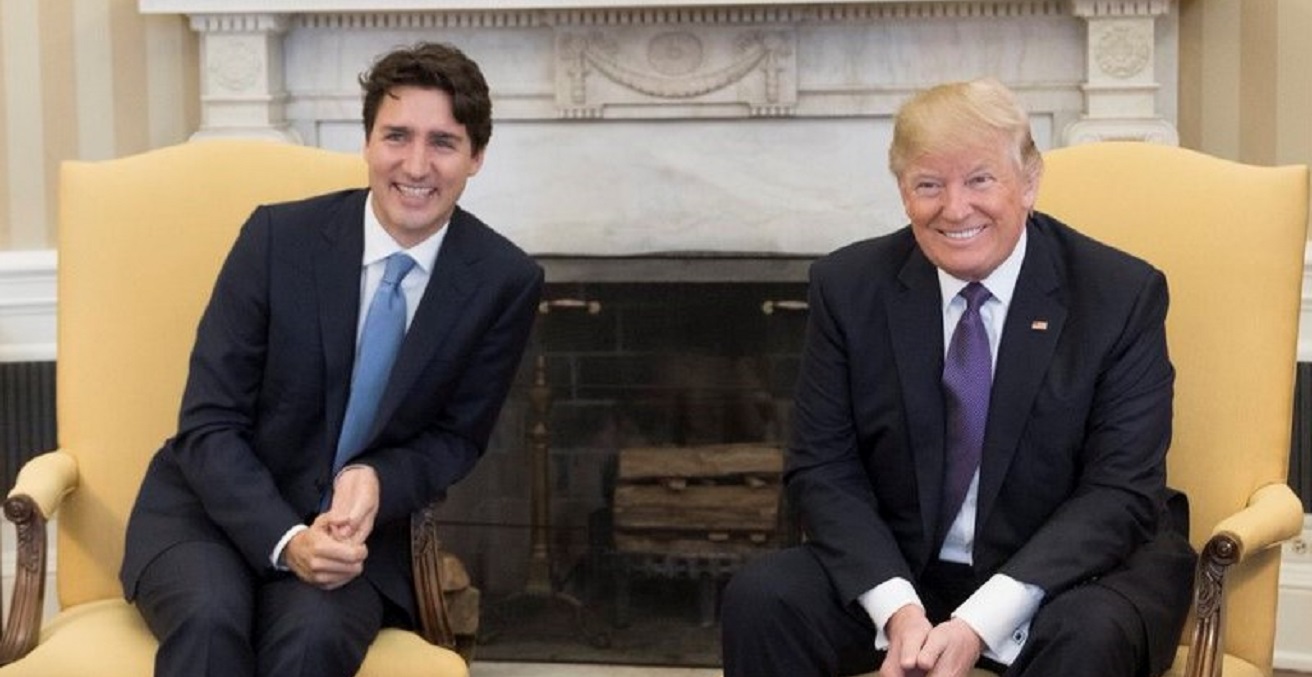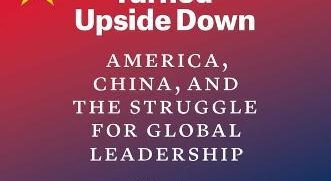Twelve Months of Trump: America First, Canada Second Best

Donald Trump’s surprise election has forced America’s northern neighbour to adjust to deep policy changes. Its two-Americas policy has failed and Trump’s legacy for Canada is a negative one.
Any evaluation of the first year of the impact of Donald Trump’s presidency on the Dominion of Canada must first take into consideration the total surprise with which the Canadian political class greeted his election victory. Like most bemused observers, including traditional Republican elites, it was thought that somewhere along the road to the primaries, Trump would eventually fall victim to his own puerile tweets, inconsiderate musings and temper tantrums. One too many allusions to women and their physical appearance, one too many personal attacks on ‘little Mario’ or the ‘loser’ Senator John McCain. It was only a matter of time. Right?
Then, time began to cruelly put all of our best predictions about the American political class in the dust-bin. Could this really be a majoritarian view of this formerly noble people with whom we share a long and porous border along the 49th parallel?
All this to say that the Canadians, its government, people and institutions were quite unprepared for a Trump victory in the fall of 2016. His election inspired trepidation of a sort rarely seen in this northern clime.
Of course, we were all aware of the numerous commercial disputes with the Americans. This was not new. Donald Trump didn’t need to tell us that exploitative softwood lumber tariffs went through the roof. Obama and the Democrats have always played the economic nationalist card to the detriment of the principle of free trade and rule of law. Nationalism always trumps free trade. This is the meaning of ‘making America great again’. Canadians and their leaders should have known this.
Front and centre was the renewal of the NAFTA free trade agreement with Mexico and the other two amigos. Trump blamed NAFTA repeatedly during the presidential election campaign seeking a scapegoat to explain the economic slowdown and woo the rust-belt states to his cause. And it worked!
It is simply amazing that two peoples which share the same border for hundreds of years, which share the same language and more or less the same culture and social vision should be so fundamentally ignorant of each other.
Our first NAFTA negotiating strategy was a purely defensive one: keep our heads down and stay off the bear’s radar screen. Trump’s rhetoric appears to single out Mexico. It can’t be us he’s after, could it? Yes, it could. Despite our modest trade deficit with the US, nothing like the proportions of that with Mexico, Trump has been trashing NAFTA and pointing his finger north. Trump inspired the covetous US aerospace giant Boeing to clamp huge tariffs on the Canadian company Bombardier regarding the sale of the innovative new C-Series airplane. At the borders in 2017, Canadian authorities have been busy dealing with the consequences of Trump’s immigration policy seeking to expel large numbers of Haitians and other Latin American refugees, who have been living for years in the USA. The Canadian response—weak, submissive and uncomprehending—would be almost laughable if it were not so pathetic.
The fact is that Trudeau’s Liberal government concluded that the wrong side won in the presidential election of 2016. Accordingly, the inept clumsy conduct of Canada-US relations is based on attempting to disguise this fundamental truth from President Trump himself.
To reach a favorable result in the NAFTA discussions, all we have to do is wine and dine our US friends: you know the ones in the Northeast, the ones most like us. The premise of this policy is the two-Americas policy. There was no policy on earth so clear, so transparent and so pretentious as the one pursued by the Liberal government of Canada. And it was perceived by Trump in the exact same spirit with which it was imagined by its Canadian creators. Hostile, ideologically left-of-centre and repugnant to Trump tea-partyers and inconsistent with making America great again. Throughout 2017, Trudeau’s Liberals and diplomats actively sought out Trump’s enemies for counsel: ex-Vice-President Joe Biden’s visit to Ottawa in 2016; ex-Secretary of State John Kerry on Aga Khan’s private island; political leaders thought to be out of sorts with Trump; and border state and even red state governors based on whether or not they profited from a Canadian presence in NAFTA. The feckless national media required no persuasion as it promoted this irrational two-Americas policy. Had it at least been strategically crafted, we might have been able to find solace in its being a bit clever despite its successive failures.
Throughout 2017, Trudeau-Trump meetings were characterised by Trump’s compliments to the younger leader, giving the press the high sign when referring to his northern ally. Trump was never convincing with his faint praise which really meant the opposite.
In order to convince the bear that all is well, a quick first trip was made by the Canadian prime minister to Washington. The US NAFTA strategy was already unfolding as something much more than a few tweaks to an agreement. Trump had, in the meantime, chosen deadly serious hard line negotiators like Wilbur Ross for the NAFTA job. The writing was on the wall.
Independence in Canadian foreign policy has evaporated. Meanwhile, idle talk about the importance of Canadian trade and investment to the state of Kentucky fills the tabloids. To be honest, Canadian foreign policy was never very independent. Ironically, it was at its zenith when ‘Père Trudeau’ was in power in Ottawa. The example of the Canadian voting pattern on US resolutions affecting Israel and the Palestinians is a case in point. Contrary to Liberal spin, Trudeau has continued the Conservative policy of the uneven voting pattern of Canada against Palestinian nationhood and interests. Just like his predecessor Stephen Harper. The latest outrage regarding the moving of the US Embassy to Jerusalem was prompted by a desire not to displease Trump to assist in NAFTA negotiations. The most Canada got out of it was a champagne ‘victory’ party at the UN delegation in New York.
Then, later in the year 2017, the Canadian leader decided to veto any restart of the Trans-Pacific Partnership by not attending a decisive meeting in Asia. Japan, Australia and other states were furious. Some said it was an agenda error. Other observers wonder whether this, like the Jerusalem vote, is really the bill Canadians are paying for a feckless prime minister and a submissive foreign policy.
The news is in. Trump wins. Manifest Destiny is not dead. Canada loses. NAFTA is tanking despite cogent Canadian pronouncements regarding its inherent good. Trump knows what the Canadian strategy is and what postulates it is founded upon.
In retrospect, perhaps it was a fool’s errand trying to take on a newly-elected president early in his mandate no matter how unpopular he is in the polls. 2017 was a hard road to hoe but sacrificing relations with the Americans based on a deliberate misreading of the election result leading to the two-Americas policy was foolhardy indeed.
Job losses, loss of foreign policy independence, government aid to unexpected refugee flows from the US, strategic loss of power of industrial innovation, free trade agreements and a political leadership in serious self-denial: this is Trump’s legacy to Canada in 2017.
Dr Bruce Mabley is the director of the Mackenzie-Papineau Group think tank based in Montreal devoted to analysis of international politics. He was formerly a Canadian diplomat and served in Turkey at the beginning of the Syrian civil war.
This article is published under a Creative Commons Licence, and may be republished with attribution.





